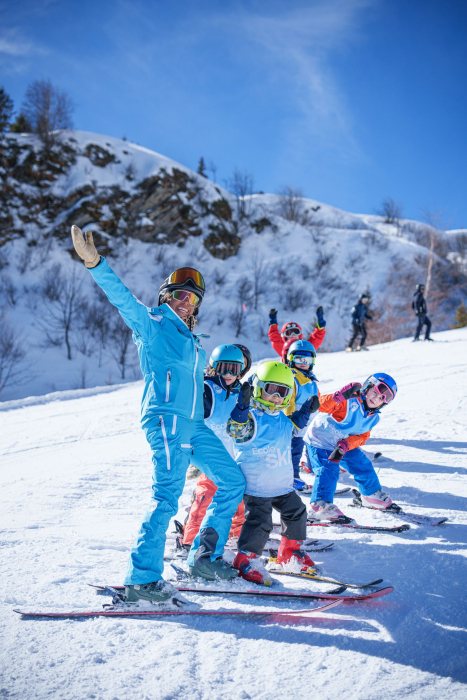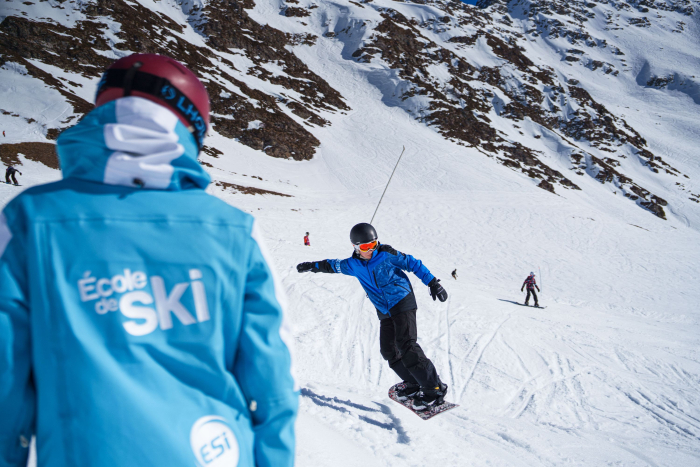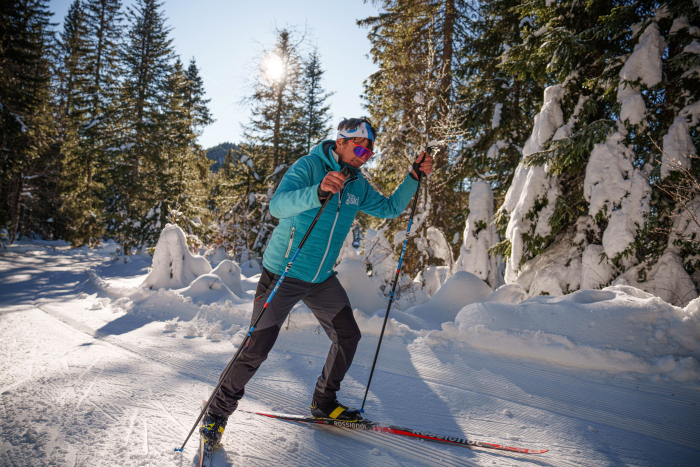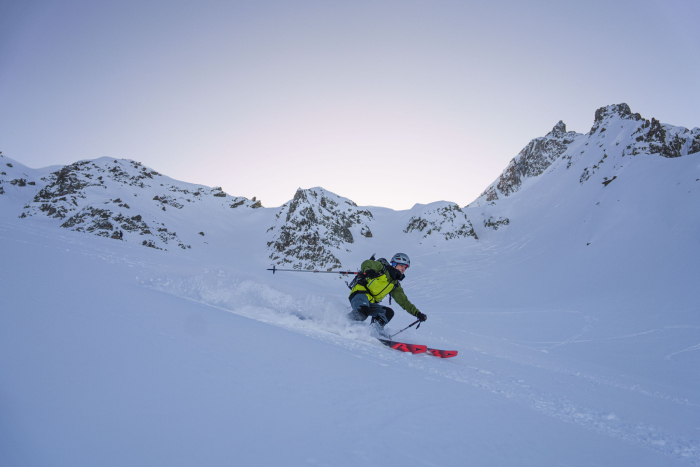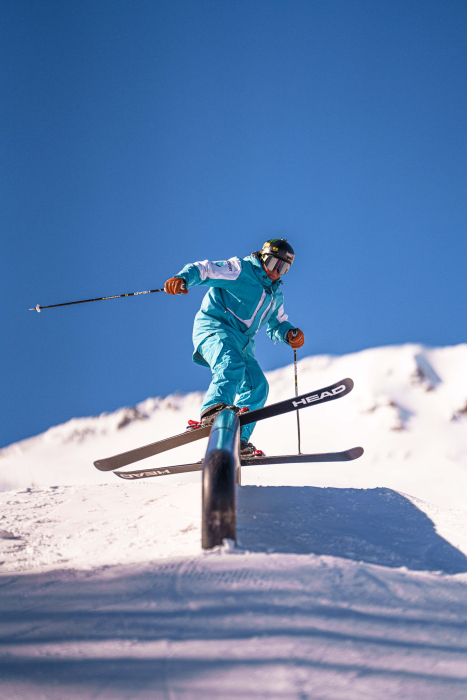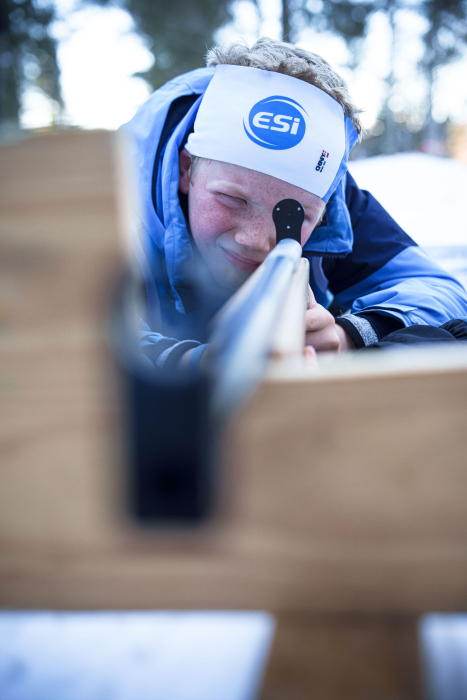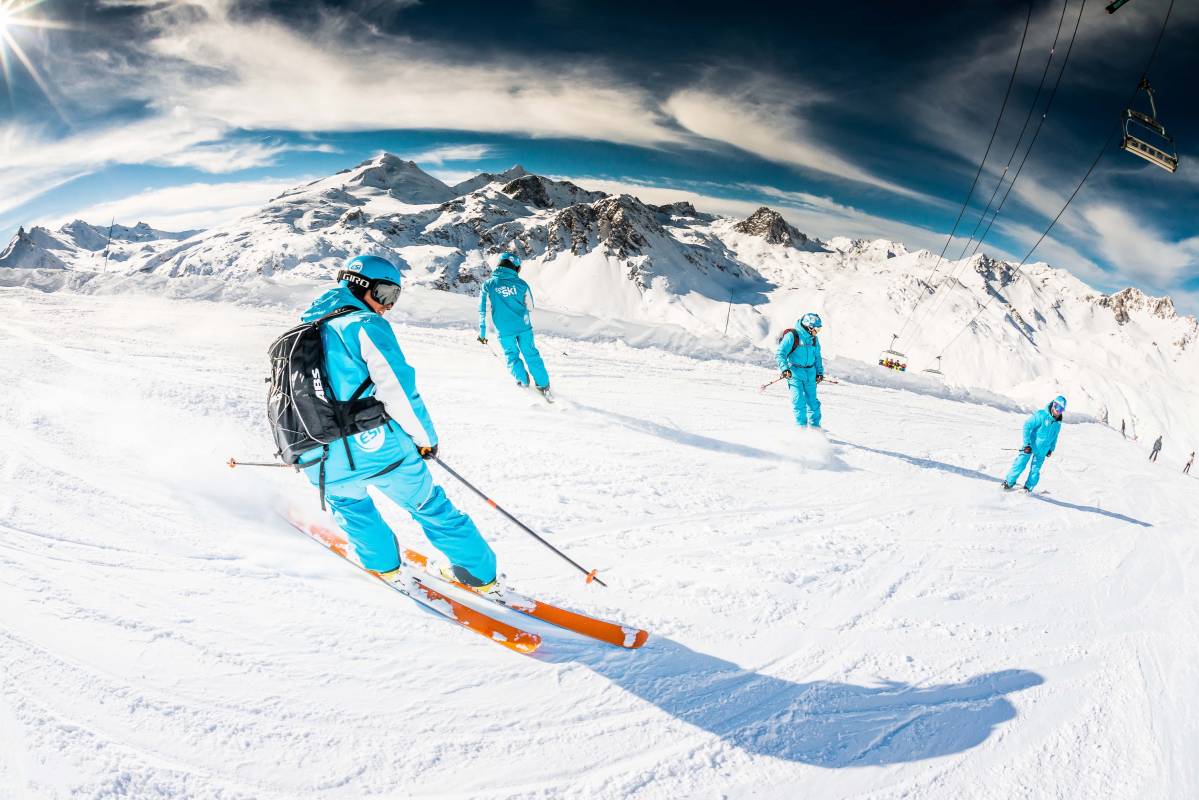As you know, wearing a helmet is mandatory during our ski lessons for children. Our instructors are adopting it more and more, of course to protect themselves, but also to set a good example.
But falls in skiing and snowboarding are also frequent among adults. Collisions between skiers or with an obstacle (e.g. a tree) can cause head injuries. Falls are of course more frequent among young children, so wearing a helmet is essential for them. Snowboarding or downhill skiing exposes them more easily to different collisions because of their physical fragility and vulnerability on the slopes.
A recent study was conducted by researchers from the Department of Sports Science at the University of Innsbruck in Austria. It focuses on the potential influence of wearing a ski helmet on risk-taking and speed on the ski slopes.
The study was conducted on a group of about 500 skiers and snowboarders, each of whom answered a personality test (gender, age, nationality, height, weight, skiing ability and health level), and asked the participants if they considered themselves to be cautious or more likely to take risks on skis. The main goal of the researchers was to determine if helmets increase people's willingness to take risks, to see if helmets could actually decrease safety on the slopes. What they found was pretty reassuring.
Take the big air final at the Winter X Games in Aspen, Colorado, last weekend. The 23 year old Icelandic snowboarder Halldor Helgason did a triple backflip during this competition, unfortunately he landed head first in the snow and briefly lost consciousness. But fortunately, like all the other competitors, he was wearing a helmet and therefore did not fracture his skull.
THE USE OF A HELMET IS IN NO WAY ASSOCIATED WITH MORE RISKY BEHAVIOR ON THE SLOPES.
In fact, the study concluded that helmets reduce the risk of serious head injury in 60% of cases. But a surprising number of safety experts and athletes are still not convinced that helmets reduce the overall risk of injury.
Why? According to a 2009 survey, 77% of skiers don't wear helmets because they fear the headgear may reduce their peripheral vision, hearing and reaction time. In recent years, many researchers have tried to address these concerns. According to the Austrian study, wearing a helmet did not increase skiers' speed. People who were considered cautious were slower than risk-takers, whether or not they wore a helmet; and risk-takers were faster, with or without a helmet.
Also of interest, the study found that skiers who are more likely to wear a helmet are the most experienced. Peripheral vision and response times are a serious safety issue in winter sports where skiers and snowboarders converge rapidly from multiple directions.The researchers also found that the volunteers' peripheral vision and reaction times remained virtually unchanged when they wore helmets.Even when the researchers added music, suggesting that skiers wear Bluetooth headsets, response time did not increase significantly.
So all skiers would be well advised to wear headphones during their winter skiing sessions. But it is not enough to buy just any helmet to be protected, you must choose an approved model (CE EN 1077 standard) and do not hesitate to ask the seller for advice on the size and fit of the helmet so that the helmet does not move once attached to your head. The life span of a ski helmet varies between 3 to 5 years, because as the seasons go by, the helmet loses its protective characteristics with the UV rays. If you have just suffered a major fall, during which your helmet has known violent shocks, it is mandatory to change your helmet. To conclude, we can say that the helmet on the ski slopes is in no way a bad thing!
It does not cause any additional risk and above all it does not interfere with your vision and reaction time. So to put it simply, helmets can save your life just like seatbelts save your life in your car in case of an accident.
So why do over 40% of skiers never wear a helmet?
Should helmets become mandatory for skiing?
Don't hesitate to give us your opinion on the question. And above all, protect yourself, wear a helmet!
![ESI [Hiver]](/build/assets/images/logo_esi-winter.cbe060df..png)
